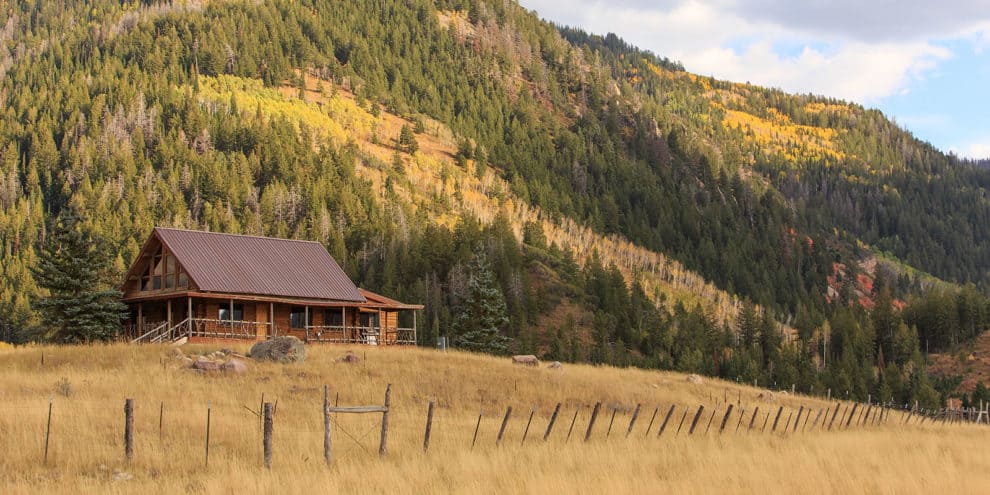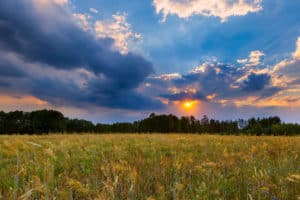Most Americans stay where they are in retirement. Of the 420,000 relocators who cross state lines each year, most look to small towns, small cities, milder climates and a lower cost of living.
The younger you are when you start planning retirement, the better. But those of the 77 million Baby Boomers who have not saved enough may not be out of luck.
If relocating to a small town or rural area might be in your plans, here are ways to approach it:
Buy your retirement place as soon as you can. This is often hard to do, because it requires that you start a long-term investment when you’re young and many considerations are unknowable or subject to change.
Some make decision easier by starting it as a second home that can become their retirement place.
About nine percent of America’s 111 million householders (owners plus renters) — roughly 10 million — own a second home, the rate being highest among those in their 50s, according to Professor Rachel Drew, coauthor of a November, 2007 study by Harvard’s Joint Center for Housing Studies, “Projecting the Underlying Demand for New Housing Units: Inferences from the Past, Assumptions about the Future.”
The advantages of extending your second home into your retirement residence are many.
The second home can be used mostly as a rental unit with income helping to retire its mortgage and the owner getting many tax benefits along with some personal use. As equity builds and appreciation occurs, you have another asset to borrow against. You also can have local friends in place before retirement.
Buying a second home sooner allows you to buy a retirement place cheaper. The second home you bought for $100,000 30 years ago might easily cost $750,000 or more today as a retirement place. The tax-free profit you will get on the sale of your principal residence can now be used for retirement living rather than for the purchase of your next house.
Buy your retirement place with your IRA. A Roth Individual Retirement Account (IRA) is the best retirement savings vehicle available. It allows an individual to contribute $4,000 annually (on which tax is paid), but all principal and all appreciation can be withdrawn tax-free in retirement. Most of us keep our IRAs in stocks, CDs and bonds.
You can also use IRA money to buy a retirement place in advance of your retirement. You cannot live there or use it until you retire. And you can’t use the retirement property to collateralize a loan, even its own.
You can use its rental income before your retirement to pay for maintenance and build your IRA account.
Using IRA money to buy rural land is simpler than buying a rural residence, since land generally requires little maintenance or insurance, and taxes are usually low.
If you sell timber or lease the IRA land for crops, minerals or hunting, your net income after taxes and expenses is added to your IRA. Taxes on income earned from the IRA property has to be paid from IRA funds. The biggest benefit of IRA real estate is its appreciated value, which you can sell before retirement and put the net into your account.
The IRS has established rules for buying and managing real estate with IRA money: you must know what they are and follow them. See Title 26—Internal Revenue Code, Section 408A, Roth IRAs.
An excellent introductory book on the subject is IRA Wealth: Revolutionary IRA Strategies for Real Estate Investment, 2nd ed., by Patrick Rice, SquareOne Publishers, 2007. Mr. Rice locates real-estate investments for IRA owners.
Picking a Place. Where to Retire Magazine is a good source for articles on small communities that are retiree-friendly. Money Magazine ran a “Best Places to Retire in 2006”.
Warren Bland’s, Retire in Style, 60 Outstanding Places Across the USA and Canada, 2007, profiles suitable small towns and small cities.
He’s developed a useful evaluation tool for retirees by which he rates communities – poor to excellent — against 12 criteria: landscape, climate, quality of life, cost of living, transportation, retail services, health care, community services, recreation, cultural/educational activities, work/volunteer activities and public safety.
Professor Bland gave me these picks for small towns with rural lifestyles available in their host counties: Ithaca, NY; Bloomington, IN; Charlottesville, VA; Gainesville, FL; Fredericksburg, TX; Chico, CA; and Medford-Ashland, OR.
Five of these six have a university. Smaller towns with colleges offer many of the same benefits to retirees—restaurants, bookstores, cultural activities, sports and cheap 17-year-old computer fixers.
If out-in-the-country-living is your goal, choose a county and then a couple of neighborhoods that appeal to you. I’d look for a pretty place with fewer than 20,000 residents, no resource-extraction controversies, a small college and a slow-growing rural economy.
What relocating retirees value in a rural community.
- Compatibility with a new group of peers
- Levels of services that meet their needs, however they’re individually defined
- Peace and quiet—political, environmental, neighborhood
- Proximity to what’s important to them—family, part-time work, recreation, religious congregation
- Climate and interesting topography
- Opportunities for volunteerism
Multi-channel television, Internet and catalog shopping, DVDs, email, search engines and all the rest make “distance-from” much less a discount factor in rural life than in the past.
Important services. Retirees should evaluate these services:
- Proximity of primary-care and emergency physicians. If a relocator has special needs, those medical providers have to be convenient and competent.
- Quality and reliability of hospital transportation
- House and yard help
Property search criteria. Retirees need to accept that they will be able to do less property-related hard work as they get older. Therefore, look for property that has:
- Convenient and safe physical access, particularly in bad weather
- Age-friendly layout in land and house
- Routine maintenance that’s easy.
- Dependable utilities
Some of us will be fortunate enough to retire with no loss in our standard of living, but most of us will not. Relocating to a small town or rural community will stretch your retirement dollars as well as your mind.
This content may not be used or reproduced in any manner whatsoever, in part or in whole, without written permission of LANDTHINK. Use of this content without permission is a violation of federal copyright law. The articles, posts, comments, opinions and information provided by LANDTHINK are for informational and research purposes only and DOES NOT substitute or coincide with the advice of an attorney, accountant, real estate broker or any other licensed real estate professional. LANDTHINK strongly advises visitors and readers to seek their own professional guidance and advice related to buying, investing in or selling real estate.








Add Comment